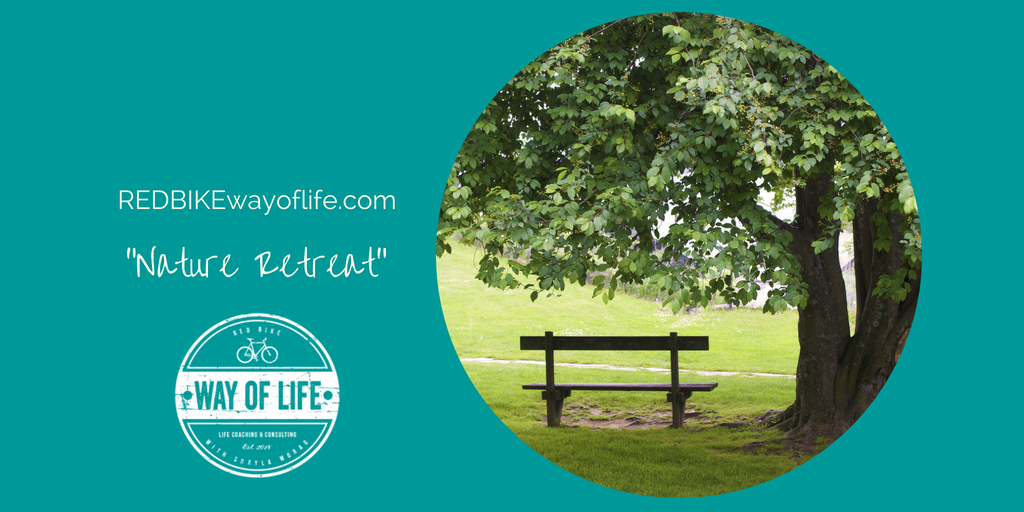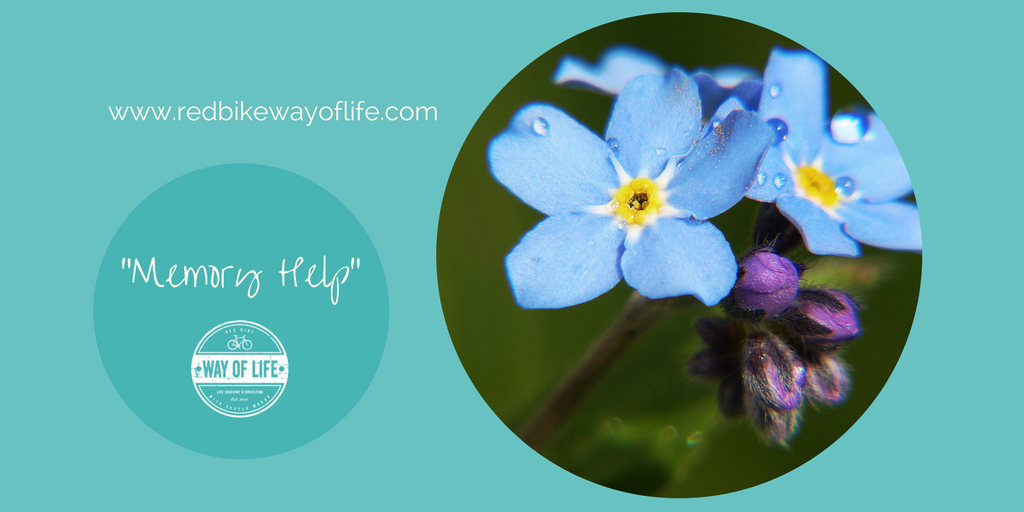
by Shayla Morag | Dec 04, 2018 | Cutting Clutter, Handy Tips, Stress Management, Support, The Red Bike Way
You can move clutter around or you can cut it off at the source. Instead of buying new storage containers or calling Goodwill for a pickup, take a look at your shopping habits. Imagine how much more you can enjoy your weekends and paychecks when you break the cycle of excess consumption. Take a look at these strategies for bringing less clutter into your life.
1) Buy what you need. Ask questions before you complete your purchase. How will you use the product you’re considering? Do you already have enough similar items at home?
2) Focus on quality. In the long run, higher priced goods usually offer greater value. A fine cashmere sweater or sturdy kitchen knives may hold up for decades while bargain brands may need to be replaced annually.
3) Stick to a budget. Decide in advance how much you can afford to spend. Regard occasional indulgences as an exception rather than the beginning of a habit.
4) Find other outlets. Retail therapy may be masking other issues. Find a hobby or do volunteer work if you’re bored. Talk with a friend if you’re feeling anxious or lonely.
5) Swap things out. During holidays and other shopping seasons, try discarding at least one item to make room for each new purchase. Give your used computer to a local nonprofit. Sell your old bedroom set on craigslist, Kijiji, or Facebook.
6) Buy for others. Studies show that spending money on others makes us happier than purchasing things for ourselves. Similarly, buying experiences instead of merchandise leaves no trail except for the pictures on your phone.

by Shayla Morag | May 22, 2018 | Change, Comfort, Grief, Mindfulness, Self Care, Self-Compassion, Stress Management, The Red Bike Way
The complications and ups and downs of modern life can leave you feeling stressed and lonely, but the solution is sometimes surprisingly simple. A recent study found that visiting a park for at least 30 minutes a week significantly reduces the risk of depression. Scientists in Australia found further evidence of what researchers have been saying for years. Connecting with nature enhances your physical, mental, and social well being.
If you want to help prevent depression, check out these handy tips. You’ll find ideas for making the most of your local park, and discover other ways to commune with nature.
Benefits of Parks and Other Natural Settings
1. Increase your happiness. Whether it’s a spectacular waterfall or a simple flower bed, we appreciate the beauty and order in our surroundings.
2. Boost your health. Spending time in parks has been shown to lower high blood pressure and reduce the risk of hypertension and heart disease. Being outdoors can also help you lose weight and sleep well if it increases your physical activity and exposure to morning light.
3. Socialize more. Parks bring together citizens from different walks of life. Whether you’re people watching or flying a kite, you share a positive experience.
Ideas for Using Your Local Park
1. Work out. Today’s parks often offer much more than jogging trails. Look for circuit training stations, softball fields, and tennis courts. Exercise requires less effort when you’re admiring the scenery.
2. Eat lunch. Squeeze a break into your busy schedule by eating lunch outdoors. Packing a bag lunch usually cuts costs and calories compared to most restaurants.
3. Attend events. Check the calendar on your park’s website. You may find free concerts, movies, and family events.
4. Pause to think. Find a comfortable place to sit and breathe.
5. Clean up. Now that you realize how much your park does for you, you may want to give something back. Join volunteer programs that pick up garbage, plant trees, or conduct tours for school children.
More Tips for Enjoying Nature
1. Take a walk. What can you do if there’s no park nearby? Stroll around the neighborhood or a local college campus.
2. Plan your vacation. Go camping or incorporate outdoor activities into any vacation. You can rent bikes or kayaks. Breakfast on the beach or go horseback riding in the mountains.
3. Tend your garden. Growing your own food and flowers is a great way to increase your gratitude for the earth. Plant tomatoes in your back yard or share a community plot.
4. Go for a dip. While green spaces provide impressive benefits, blue spaces may be even more powerful. Spend some time near water. Install a fountain in your back yard or ask a hotel if you can purchase a pool membership. Some facilities offer discounts for local residents.
5. Bring your pet. Observing wild animals is entertaining and educational as long as you take reasonable safety precautions. If you want to interact more closely, walk your dog or play Frisbee together.
6. Gaze at stars. Learn about science the fun way while you stimulate your sense of wonder. Shop for a basic telescope or check the calendar for public programs at community observatories.
7. Redecorate your home. For rainy days, invite the outdoors in. Arrange your furniture so you sit by a window with a view. Set out fresh flowers or pretty seashells.
Talk with your doctor if you’re experiencing symptoms of depression that interfere with your daily life. Otherwise, increasing your exposure to green and blue spaces may be all you need to lift your spirits and stay fit.

by Shayla Morag | Mar 15, 2018 | Caregiving, Grief, Mindfulness, Self Care, Stress Management, The Red Bike Way
As a caregiver, you can find yourself in situations where you feel judged, belittled, left out, or not appreciated. If someone hasn’t walked in your shoes, words can be said that can be hurtful and misunderstood. You can forgive others in these tough and uncomfortable situations without feeling like a doormat. If you stop waiting for an apology, it is easier to move forward. The advantages of forgiveness are the same whether the other person apologizes or not. Think of pardoning others as something you do for yourself rather than for them. Below are some suggestions:
1.Lighten up. Grudges are a heavy burden. When you release your anger and disappointment, you’ll free up energy you can devote to the things you love.
2. Show compassion. Each of us makes mistakes. When you give someone a second chance, remember that you’ll probably need one yourself someday.
3. Strengthen your relationships. Family and friends are precious. Develop connections that can withstand conflicts. Resolving your disagreements can even draw you closer together when you cooperate on finding solutions.
4. Take control. You’re in charge of your own happiness. Start feeling content right now instead of checking your phone to see if your boyfriend apologized yet.
5. Promote healing. Most of all, a loving and forgiving heart is good for your mental and physical health. You might even live longer.
Sometimes you want to forgive, but resentments still linger. These steps will help you overcome the barriers to reconciliation.
1. Wish others well. Imagine yourself celebrating the good fortune of someone who offended you. Force yourself to speak kindly to them, and you’ll eventually start to cherish them for real.
2. Hold yourself accountable. In most cases, you probably played some part in the conflict. Acknowledge your actions and figure out how to make positive changes.
3. Put yourself in their shoes. When someone fails to apologize, it usually has more to do with them than with you. They may feel ashamed or vulnerable. When you think about their pain, you may feel like you have more in common.
4. Resist all-or-nothing thinking. Distinguish between the human being and their actions. If your boss criticizes you unfairly, list the things you still like about her.
5. Write it down. Venting your feelings in a diary or an imaginary letter helps to sort things out. You can express yourself freely without worrying about widening the divide.
6. Reach out. If someone close to you has trouble apologizing, you may need to make an extra effort. Let them see how you apologize and take responsibility for your actions so they can discover more options
7. Set boundaries. On the other hand, you may decide to limit contact if the relationship is dragging you down. You can still have affection and respect for someone you may need to keep at a distance at least temporarily
8. Cultivate your peace of mind. The more secure you feel, the easier it is to focus on helping others rather than judging them. You’ll understand that your future depends on your choices rather than real or imagined insults.
Forgiveness allows you to let go of the past and free yourself from anger and resentment. It’s a decision you can make on your own regardless of whether others apologize or show little remorse. You have nothing to be sorry about when you give yourself the happiness you deserve.

by Shayla Morag | Feb 27, 2018 | Grief, Self Care, Stress Management, The Red Bike Way
Going through loss and grief can make us feel numb at times. Sometimes our memory can become foggy and confused. There are many components of a good memory. The health of your brain is among the most important. It’s natural for memory to decline with age, but there are many ways to slow that decline. A poor memory can be frustrating for everyone involved. Below are 10 simple steps you can take to enhance your memory at any age. Boost your memory with these simple steps:
1. Change your diet. Research suggests that omega-3 fatty acids and an anti-inflammatory diet can enhance memory. Your diet affects all aspects of your body. Alter your diet and you alter your ability to store and retrieve memories. There are several versions of anti-inflammatory diets. Experiment and see which works best for you.
2. Manage stress. Stress is hard on your body, brain, and memory. Stress has been linked to decreases in memory. Set reasonable expectations for your life. Learn how to relax and avoid stress. Ensure that you’re getting enough leisure time
3. Get enough sleep. Scientists are still confused about what happens while we sleep, but it has been established that our brains don’t work as well when we’ve been deprived of sleep. One late night on the town will prove this fact to anyone. Get enough sleep and your memory will be enhanced.
- Stick to a regular sleep schedule.
- Avoid caffeine.
- Try taking a nap for a middle of the day pick-me-up.
4. Use repetition. It’s much more effective to expose yourself to something repeatedly than to attempt to learn it in one sitting. If you’re trying to learn French vocabulary words, six 5-minute sessions will be more beneficial than one 30-minute session. The popular flash card program, Anki, uses spaced repetition to aid memory.
5. Keep your mind active. Do something each day that requires a lot of brain activity. Reading, crossword puzzles, chess, and various brain teasers are effective at keeping your mind active and sharp. Avoid relying on just a single activity. Mix it up and hit your brain from every angle.
6. Be creative. Creativity uses different parts of the brain than the more analytical functions we typically perform. Paint, draw, learn an instrument, or write. Anything requiring creativity can be useful.
7. Exercise. Moving blood through your body and brain can boost memory. Obesity can lead to blood sugar and circulatory issues. Both can impair memory. You don’t have to pretend you’re training for the Olympics, but get your heart pumping for a few minutes each day.
8. Write it down. It’s easier to remember something if you write it down, instead of just hearing or reading it.
9. Say it aloud. Use all of your senses. Say it so that you can hear it. If you write it, read it aloud, and imagine it, it will be much easier to remember. Expose yourself to the information you wish to remember in a variety of ways.
10. Maintain healthy relationships. Some memory experts believe that relationships are the key to keeping your brain healthy and active. It has been discovered that those with the busiest social lives have the slowest declines in memory.
- Spend more time with family and friends.
- Make some new friends or join a club.
Even if you believe you’ve been plagued with a poor memory, it can be enhanced. Minimizing stress, challenging your brain on a regular basis, and getting sufficient sleep are a few of the steps that can be taken to improve memory function. It’s never too late to pay attention to your memory.





